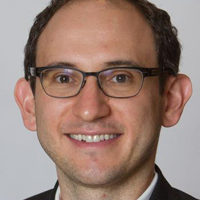
The panic surrounding the 2014 Ebola epidemic is more infectious than the virus itself. This is the time for forward-thinking activists to take a deep breath and start countering the opportunists who are using this epidemic to further fuel their fear machine.
Ebola is a deadly virus that demands a forceful and thoughtful response. For several decades, global health authorities have documented and responded to Ebola virus epidemics in central Africa, primarily in the Democratic Republic of Congo. These epidemics have been rural in nature and have claimed relatively few victims. Over the decades, physicians have come to understand much about how the Ebola virus spreads from person to person and how it affects its victims.
The main difference between this epidemic and others is that this epidemic struck primarily urban areas in three West African countries: Guinea, Liberia, and Sierra Leone. The more densely populated urban areas have resulted in faster transmission and more deaths. As of Oct. 25, there have been 10,141 confirmed cases of Ebola and 4,922 deaths.
Ebola is difficult to spread. It is only possible to catch Ebola from another person who is currently showing symptoms; these are primarily fever, severe headache, muscle pain, weakness, diarrhea, vomiting, abdominal pain, and unexplained bruising or bleeding. The virus only spreads when body fluids from someone who is showing symptoms – blood, feces, urine, semen, saliva, breast milk, vomit, and sweat – come into contact with another person’s mouth, nose, eyes, broken skin, or sexual organs. Ebola is not airborne, but can be spread through droplets (for example, when someone who is showing symptoms coughs or sneezes on another person). Ebola has an incubation period that lasts from two to 21 days; this means that after a person is exposed and if she does not develop symptoms within 21 days, then there is no chance that the person has Ebola.
The events at Texas Health Presbyterian Hospital in Dallas triggered intense scrutiny of the mistakes that had led to Thomas Eric Duncan’s initial hospital discharge and eventual infection of two nurses, Nina Pham and Amber Vinson. It became clear to public health authorities that without serious effort, U.S. hospitals were not adequately prepared to safely handle patients with Ebola. The Centers for Disease Control and Prevention have significantly modified their response for possible Ebola cases. When New York City’s first Ebola case emerged, Bellevue Hospital followed the strict new protocols developed with the lessons learned from what happened in Texas.
While there is no question that serious missteps occurred at Texas Health Presbyterian, the overall response to Ebola has been driven much more by politics and fear than by rational public health considerations. All the elements of a best-selling news cycle can be found in this situation: racism against Africans, xenophobia, distrust of science and medicine, an opportunity to attack the Obama administration, gruesome details, and moving human-interest angles. As a result, the instinct of some politicians to transform this situation into possible electoral points has been the primary driver of our response. Fundamentally, the fact remains that Ebola presents a negligible risk for the average person living in the United States. Diseases such as heart disease, diabetes, injuries from motor vehicle accidents, depression, and influenza remain much more serious, and much more pressing, health care priorities. Minor precautions such frequent hand washing can even further decrease the vanishingly small risk any one individual has of contracting Ebola. Other measures, such as receiving a yearly influenza vaccine, will reduce people’s risk of contracting a more prevalent disease that can be deadly and reduce the burden on our hospitals by reducing preventable trips to the ER.
One of the questions most politicized by the conservative fear machine has been the mandatory 21-day quarantine of individuals who are not sick. When New Jersey Governor Chris Christie ordered Kaci Hickox, an epidemiologist who recently returned from Sierra Leone, to remain quarantined in a tent outside Newark’s University Hospital despite the fact that her blood tests were negative for Ebola, significant issues of distress and due process came to the fore. The Centers for Disease Control and Prevention do not recommend quarantine of exposed individuals who are not showing symptoms, only that they stay home from work and check their temperatures twice per day. Mandatory quarantine of people who are not sick places a major strain on health systems that are already stressed and may dissuade health care workers from caring for patients with Ebola in West Africa and at home.
While Ebola is not anywhere close to a crisis in the United States, it is a major crisis in Guinea, Liberia, and Sierra Leone. Many health care workers in these countries have become infected and died while treating others affected by Ebola; this has created a near-collapse of those nations’ health care systems. Even while Ebola continues to spread, other diseases such as malaria, diarrheal diseases, injuries from accidents, and childbirth complications remain. Even prior to Ebola, these countries’ health care systems were hard pressed to meet their nations’ demand. Now, with hospitals and clinics overrun with Ebola patients, and many fewer trained professionals available, many more people are dying of other illnesses that previously would have been successfully treated. People who die of these other conditions are not counted in the Ebola statistics, but they are also victims of the Ebola outbreak. These three countries desperately need the international community to help them rebuild, equip, and staff their health care systems. Major investment in infrastructure, mobilization of medical volunteers, and donation of supplies is needed to ensure that the Ebola epidemic can be brought to heel. The world will only be safe from international spread if the epidemic can be controlled in West Africa. Once the epidemic is contained, then these countries will need significant help in training a new health care workforce to replace the hundreds of professionals who died during the epidemic.
Emphasizing the minute risk that Ebola poses to the U.S. population does not negate the need to ensure that our health care system is prepared to handle Ebola cases if they do appear in our emergency rooms. This must be done in a way that protects emergency and hospital workers. As their counterparts in West Africa, U.S. hospital workers do come into close and frequent contact with patients’ bodily fluids. Hospital workers need access to adequate personal protective equipment and adequate training on how to safely use it. This training is difficult to provide because it is time consuming and requires workers to role-play use of the equipment numerous times until each one can use it without making any mistakes. Many states are designating specific hospitals to provide Ebola care and intensively training the workers who would be providing care to Ebola patients. These states are also developing specific protocols on how to transfer patients to these Ebola-designated hospitals. Labor unions representing hospital workers have been at the forefront of making sure that their members receive the equipment and training they need to ensure that hospitals can provide the best and safest care to all patients.
So what is to be done? Knee-jerk and politically driven programs such as mandatory quarantines and border closures serve only to strengthen fear-driven politics without increasing public safety. Conservatives will work hard to strengthen racist and xenophobic narratives and to score political points against Democrats prior to the upcoming election. Progressives must counter Ebola hysteria by pushing policies that are based on public health science. It is only by demanding a level-headed response that we can ensure that critical humanitarian aid arrives in West Africa, that our health care system is ready to handle Ebola, and that we continue to increase access and quality in our health care system.
Photo: Centers for Disease Control disease detective Rupa with Guinean colleagues, at the river border between Guinea and Sierra Leone (via CDC).












Comments